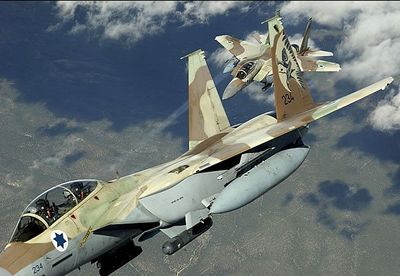Despite Israeli threats of a strike on Iran if world powers fail to halt its nuclear drive at talks entering an endgame in Vienna, experts see the sabre-rattling as largely diplomatic brinkmanship.
With Monday’s deadline for a lasting agreement fast approaching, Israel has been keeping up pressure on the five permanent members of the UN Security Council and Germany which are involved in the negotiations.
Israel, the region’s sole if undeclared nuclear-armed state, sees itself as the first potential target if Iran develops an atomic bomb, and has warned against striking what it describes as a “bad deal” with Tehran.
If an agreement is signed that leaves Iran on the threshold of becoming a nuclear power, “we will preserve all options and all our rights to do what we see fit to defend Israel,” Intelligence Minister Yuval Steinitz said this week.
But Israel “does not want war”, said Emily Landau, director of an arms control project at Tel Aviv University’s Jaffee Centre for Strategic Studies.
“By brandishing the threat of military intervention Israel is counting on the deterrent effect,” she said.
“A good agreement (with Iran) is not possible because it will not include Iranian ballistic missiles on which nuclear warheads could be mounted,” she added.
Israeli Prime Minister Benjamin Netanyahu has previously warned that a “bad” nuclear deal which leaves Iran with the capability to enrich uranium would be “catastrophic” and worse than no deal at all.
Israeli media in March carried an apparently leaked report saying that Netanyahu and Defence Minister Moshe Yaalon had ordered the military to earmark a budget reserve of nearly $3 billion for a possible offensive against Iranian nuclear facilities.
In public, Yaalon took a swipe at Israel’s US ally.
“The United States began negotiations with the Iranians, but unfortunately in what became a Persian bazaar, Iranians are the best,” he said.
Israel has strongly opposed the negotiations with its arch-enemy, and has said repeatedly that it is prepared to go it alone if necessary with pre-emptive military action against Iran’s nuclear facilities.
But Ephraim Kam, of Israel’s Institute for National Security Studies (INSS), said there is almost no chance of Israel launching an offensive against the Islamic republic.
“For the past year the Americans haven’t talked about the military option,” he said. “If the negotiations are extended, of which there is a strong chance, Israel cannot allow itself to go into action alone while the Americans continue discussions with the Iranians.”
“Israel has the capacity to delay the Iranian nuclear program by several years, but not to reduce it to nothing,” he said.
‘Playing diplomatic card’
The objective of the Vienna talks is to turn an interim accord with Iran reached a year ago into a lasting agreement.
Such a deal, after 12 years of rising tensions, is aimed at easing fears that Tehran will develop nuclear weapons under the guise of its civilian activities — an ambition the Islamic republic has denied.
Nuclear expert Ephraim Asculai, formerly a senior official at the Israel Atomic Energy Commission, said Israel “has every interest in playing the diplomatic card so that international sanctions on Iran are not lifted.”
“In the event that an agreement is reached Israel will not be able to attack a country that has an accord with the United States.”
Analysts say Israel has the military capabilities to strike Iran if it wants to, and is also bolstering its missile defences.
In 2007, Israeli planes are believed to have struck an undeclared Syrian nuclear facility although the Jewish state never confirmed its involvement.
In September this year, Israel said it had successfully conducted a joint test with the United States of an upgraded Arrow 2 ballistic missile interception system over the Mediterranean Sea.
The system, designed to counter long-range missiles, has successfully intercepted missiles similar to Iran’s Shihab-3 in a variety of test conditions.
“Israel has the means to attack and cause severe damage to Iran,” said Ephraim Halevy, a former head of the Mossad intelligence agency which experts say has been pursuing covert operations against Iranian nuclear scientists.
“But the real military option is the United States, with its troops, its navy and air force deployed in the Gulf.”
“The ideal for both Israel and the United States would be to win the game by showing their strength without actually using it,” he added.










